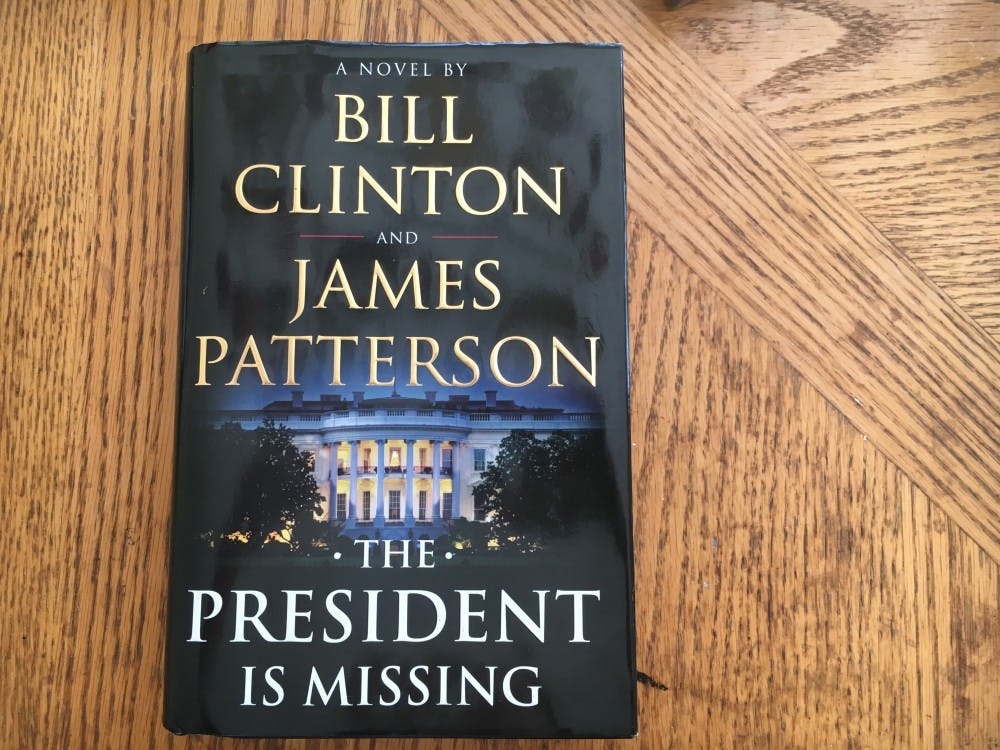President Bill Clinton had a dream. In this dream, he’s President Duncan, a stronger, more virtuous version of himself. He fights the bad guys and rises victorious over his political foes. Oh, and he gets those pesky election-meddling Russians as well – that’s a plus.
So it goes in Bill Clinton and James Patterson’s new novel, “The President is Missing” — a breezy thrill ride that doubles as a hymn to Clinton’s alter ego.
President Duncan’s story begins where Clinton’s presidency left off: an impending impeachment. Yet, it ends with President Duncan boasting a heroic victory over cyber-terrorism in a political speech that pedals trendy Democratic talking points. In between is fast-paced, entertaining James Patterson fare that you won’t find easy to put down.
The plot starts with a mysterious girl who contacts President Duncan by uttering the code words “Dark Ages” – supposed to be known to only eight people. After she’s assassinated, her partner informs the President of a massive "wiper" malware the two of them helped the Sons of Jihad build and install. This virus would completely wipe every computer and phone in the U.S. and hence usher in a new “Dark Ages.”
The impeachment trial is more idealized than Clinton’s own. Lester Rhodes, the blustery Speaker of the House, demands answers for why Duncan seemingly foiled a military operation to eliminate cyberterrorist Suliman Cindoruk, who runs an anti-Western “secular extreme nationalist” group known as the Sons of Jihad.
Of course, Duncan was acting in the interests of the American people. It’s classier to be impeached for that than for “rocking the Casbah” with an intern in the Oval Office.
After a few plot twists and an exciting climax, President Duncan saves the day, foils the evil plot and leaves us with a hero.
The assassins and evil tech geniuses aside, Duncan does seem to be at war with something else – the political climate. Clinton and Patterson paint Duncan as a lone beacon fighting for the good of the country against the tide of opportunists. His chief nemesis, Speaker Rhodes, seems like a Newt Gingrich-caricature who makes up for what he lacks in brains and morals with wily political maneuvering.
In his final speech, Duncan decries the “us versus them” nature of politics. He preaches that “our democracy cannot survive its current downward drift into tribalism, extremism and resentment.” His answer is “shrinking the definition of them and expanding the definition of us…” This book seems to represent Bill Clinton’s chummiest dream.
Indeed, President Clinton would love to be President Duncan. What president wouldn’t? Duncan is a John McCain-style war hero who endured torture in Iraq. He is no wimp — he holds himself accountable for the nation’s problems and stands up to the bad guys.
Duncan even gets the better of those meddlesome Russians. He severs diplomatic ties with Russia because of its complicity in the plot and dedicates a section of his speech to Congress on Russia's election meddling. Hillary Clinton would be proud.
Many remember Clinton as the sound-bite President, or “Slick Willie,” the flawed but charismatic politician. Duncan, however, is a clumsy politician. He doesn’t play “the game.” He’s principled, off-the-cuff and not afraid of political ramifications of his decisions.
But after all, one of the book’s selling points is getting to see the actual President’s mindset. So, what might Clinton be trying to get across? One indication might come from an interview with NPR in which he promoted the book.
He reflected on how serving the people involves disengaging yourself. He described not having feelings, save those for the American people.
Granted, some of the feelings he had got him into trouble. But Clinton’s main point is that as the President, your singular concern must be the fate and well-being of the United States of America. It’s the toughest job in the world.
But as President Duncan would say, that’s the job you sign up for.




